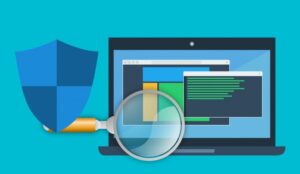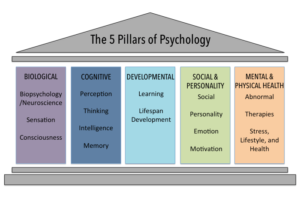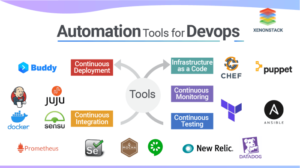![[ GET ] [ $30 ] A Comprehensive Guide to Earning Extra Income through ...](https://nurnaio.info/wp-content/uploads/2025/06/Blogger-Income.jpg)
In the ever-evolving digital landscape, blogging for income guide offers aspiring writers a lucrative avenue to share their thoughts while generating revenue. Whether you’re a seasoned blogger or just starting, understanding the nuances of this journey is essential for success.
This guide will explore the critical elements of establishing a blog, from selecting the right web hosting service and domain name to designing an engaging site. We’ll also delve into various monetization strategies, including affiliate marketing and e-books, ensuring you have the tools to turn your passion into profit.
Web Hosting and Domain Names
Choosing the right web hosting service and domain name is crucial for anyone looking to monetize their blog. These foundational elements affect not only the performance of your site but also its credibility and security. Understanding the essential factors in selecting web hosting and registering a domain can significantly impact your blogging success.
Factors to Consider When Choosing a Web Hosting Service
Selecting a web hosting service requires careful consideration of several key factors that will influence your blogging experience. The following aspects are vital to ensure your blog runs smoothly and efficiently:
- Uptime Guarantee: A reliable hosting provider should offer at least a 99.9% uptime guarantee, ensuring your blog is accessible to readers most of the time.
- Speed Performance: The loading speed of your website is crucial for user experience and . Choose a host that provides optimized servers and content delivery networks (CDNs) to enhance loading times.
- Customer Support: Look for hosting services that offer 24/7 customer support via multiple channels, such as live chat, phone, and email, to assist you when issues arise.
- Scalability: As your blog grows, you may need to upgrade your hosting plan. Choose a provider that allows easy upgrades without significant downtime or data loss.
- Price: Compare pricing plans and ensure the service offers good value for the features provided. Consider introductory offers but be wary of renewal rates.
- Backup Options: Regular backups are essential. Choose a host that provides automatic backups and easy restoration options to safeguard your content.
Comparison of Popular Domain Name Registrars
Choosing a domain name registrar involves evaluating their features, pricing, and additional services. Here’s a comparison of some popular registrars to help you make an informed choice:
| Registrar | Key Features | Pricing |
|---|---|---|
| GoDaddy | Wide selection of domain extensions, excellent customer support, easy domain management tools. | Starts around $12/year |
| Namecheap | Affordable pricing, free WHOIS privacy protection, user-friendly interface. | Starts around $8.88/year |
| Bluehost | Free domain for the first year with hosting plans, reliable support, integrated with WordPress. | Starts around $11.99/year |
| Google Domains | Simplicity and integration with other Google services, good customer support, transparent pricing. | Starts around $12/year |
| Hover | No upselling, intuitive interface, strong privacy features. | Starts around $10.99/year |
Importance of SSL Certificates for Blogs
SSL certificates play a critical role in securing your blog and protecting your visitors’ data. They encrypt the information exchanged between your website and its users, which is essential for trust and security. Websites with SSL certificates are recognized by browsers as secure, leading to higher search rankings and improved user confidence.Obtaining an SSL certificate is typically straightforward. Many web hosting services provide free SSL certificates through services like Let’s Encrypt.
To acquire one, follow these steps:
- Check if your web host offers free SSL certificates.
- If available, enable the SSL feature through your hosting dashboard.
- For paid SSL certificates, request one from your hosting provider or purchase it directly from a trusted certificate authority.
- Follow the installation instructions provided by your host or certificate authority to activate SSL on your blog.
Web Design and Development

An engaging blog layout is essential for capturing and retaining readers. A well-designed blog not only enhances the aesthetic appeal but also significantly influences user engagement and navigation. The layout should cater to the preferences and behaviors of the target audience, ensuring that every element serves a purpose while encouraging exploration and interaction.Responsive design has become a crucial aspect of web design for bloggers.
With the increasing use of mobile devices, it’s imperative to create a layout that adapts seamlessly across various screen sizes. Key elements of responsive design include flexible grids, fluid images, and media queries. These components work together to ensure that text, images, and other content are displayed optimally, regardless of the device being used.
Engaging Blog Layout Tips
Creating an engaging blog layout involves several best practices that enhance user experience and keep readers coming back. Consider the following tips for maximizing engagement:
- Consistent Branding: Use a consistent color scheme, typography, and imagery that reflect your brand identity. This creates familiarity and trust with your audience.
- Clear Navigation: Ensure menus are simple and intuitive. Categories and tags should be easy to locate, allowing readers to find content quickly.
- Whitespace Utilization: Incorporate whitespace to avoid clutter and help readers focus on key content areas, making the blog visually appealing.
- Featured Content Areas: Highlight popular or recent posts on the homepage to draw attention and encourage clicks on high-quality content.
- Readable Typography: Choose fonts that are easy on the eyes with appropriate size and spacing to enhance readability across all devices.
Key Elements of Responsive Design
Responsive design is integral to a successful blogging platform. It assures that your blog’s appearance and usability remain consistent across all devices. Important components include:
- Fluid Grid Layouts: Use proportion-based grids to enable flexible resizing of layout elements. This ensures that your blog adapts to various screen widths.
- Flexible Images: Implement CSS techniques to make images adjust according to screen size, preventing distortion or overflow.
- Media Queries: Utilize CSS media queries to apply different styling rules based on the device being used, enhancing the user experience for different screen types.
User Experience Importance
The user experience (UX) in web design plays a pivotal role in the success of a blog. A positive UX can lead to higher engagement levels and increased visitor retention. Consider these aspects for enhancing user experience:
- Fast Loading Times: Optimize images and assets to ensure quick loading, minimizing frustration and bounce rates.
- Mobile Optimization: Given the prevalence of mobile browsing, ensure your blog is fully optimized for smartphones and tablets.
- Accessible Design: Incorporate accessibility features to cater to all users, including those with disabilities, ensuring your content is available to a wider audience.
- Engaging Calls to Action: Clearly placed and compelling calls to action guide users towards desired outcomes, such as signing up for newsletters or following on social media.
“A well-designed blog not only attracts readers but also builds a community around shared interests.”
Making Money Online
![[ GET ] [ ] A Comprehensive Guide to Earning Extra Income through ... [ GET ] [ ] A Comprehensive Guide to Earning Extra Income through ...](https://nurnaio.info/wp-content/uploads/2025/06/Blogger-Income.jpg)
As a blogger, one of the most rewarding aspects is the potential to turn your passion for writing into a source of income. In today’s digital landscape, there are numerous ways to monetize your blog, allowing you to not only share your thoughts and ideas but also create a sustainable revenue stream. This section will delve into effective monetization strategies, particularly focusing on affiliate marketing and e-books, to help you maximize your blogging efforts.
Monetization Strategies for Bloggers
To effectively generate income from blogging, it is essential to explore various monetization strategies. Each approach has its unique benefits and can cater to different blogging styles and audiences. Here are some popular strategies you can adopt:
- Affiliate Marketing: Partner with brands and promote their products or services. You earn a commission for each sale made through your referral link.
- Sponsored Content: Collaborate with companies to create sponsored posts or reviews tailored to your audience.
- Online Courses and Workshops: Share your expertise by offering courses or hosting workshops that your audience would find valuable.
- E-books and Digital Products: Create and sell your own e-books, guides, or templates that cater to your niche.
- Membership or Subscription Models: Offer exclusive content to paying subscribers, providing them with more in-depth resources or community access.
- Advertising: Utilize ad networks like Google AdSense to display ads on your blog, earning revenue based on traffic and clicks.
Affiliate Marketing Guide for Bloggers
Affiliate marketing is a powerful tool for bloggers looking to monetize their platforms. By recommending products that resonate with your audience, you can generate significant income. To succeed in affiliate marketing, consider the following best practices:
- Choose Relevant Products: Select products that align with your blog’s niche and cater to your audience’s interests.
- Build Trust: Establish credibility by being honest and transparent about your recommendations. Only promote products you believe in.
- Use Clear Call-to-Actions: Encourage readers to click your affiliate links by using compelling call-to-action phrases.
- Track Performance: Use tracking tools and analytics to monitor the success of your affiliate links and adjust your strategies accordingly.
- Leverage Social Media: Promote your affiliate links through your social media channels to reach a broader audience.
- Disclose Affiliate Relationships: Be upfront about your affiliate partnerships to maintain transparency and trust with your audience.
“Building a successful affiliate marketing strategy requires patience, consistency, and a focus on providing value to your audience.”
Using E-books as a Revenue Stream
E-books offer a fantastic way for bloggers to monetize their expertise while providing valuable content to their readers. By creating informative and engaging e-books, you can tap into a new revenue stream. Here’s how to effectively use e-books in your blogging journey:
- Identify Your Niche: Determine what topics resonate with your audience and how you can provide solutions or insights through your e-book.
- Create Quality Content: Focus on delivering high-quality, well-researched content that addresses your audience’s needs and interests.
- Design and Format: Invest time in creating an appealing layout and design for your e-book to enhance user experience and readability.
- Set a Fair Price: Research similar e-books in your niche to determine a competitive price point while considering the value you’re offering.
- Promote Your E-book: Utilize your blog, email list, and social media to promote your e-book. Consider offering limited-time discounts or bonuses for early buyers.
- Gather Feedback: Encourage readers to provide feedback and reviews, which can help improve future editions and enhance credibility.
“An e-book is not just a product; it’s a powerful tool for building your brand and establishing authority in your niche.”
Last Word
To wrap it up, the blogging for income guide empowers you with the knowledge to navigate the intricacies of making money online through your blog. By implementing these strategies and continuously refining your approach, you can unlock a rewarding income stream while sharing your unique voice with the world.
Questions Often Asked
Can I start a blog for free?
Yes, there are platforms that allow you to create a blog for free, but they may have limitations on features and monetization.
How long does it take to make money from blogging?
It varies, but many bloggers start seeing income within 6 to 12 months with consistent effort and effective strategies.
Do I need to be a tech expert to start a blog?
No, many blogging platforms are user-friendly and provide templates to help you get started without technical skills.
Is important for my blog’s success?
Absolutely! helps increase your blog’s visibility on search engines, leading to more traffic and potential income.
What niche should I choose for my blog?
Choose a niche that you are passionate about and that has a potential audience. Research trends and interests to find your perfect fit.





